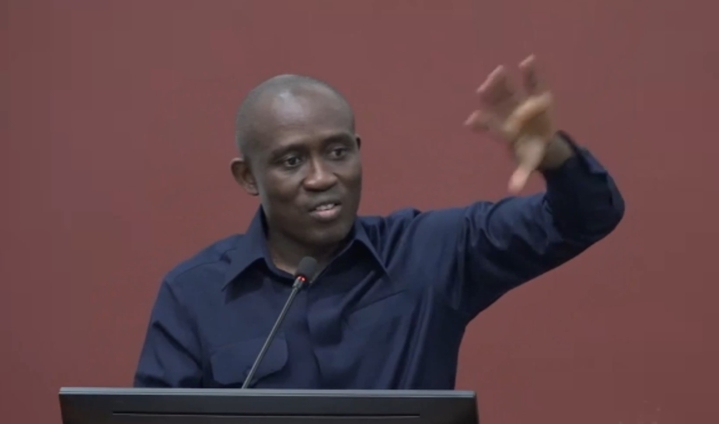The Director of Public Health, Ghana Health Service, Dr Franklin Asiedu-Bekoe is pushing for an extensive roll out of the Surveillance Outbreak Response Management and Analysis system (SORMAS) to keep disease outbreak in check.
The system, which was introduced in 2015 detects, investigates and controls diseases.
The system has successfully been deployed in 3 simultaneous outbreaks in Nigeria that is Lassa fever, bacterial meningitis and monkey pox.
In Ghana, SORMAS has been piloted in 36 districts in 2 regions.
Speaking at One Health Sub-Saharan Africa workshop in Kumasi, Dr Asiedu-Bekoe identified inadequate use of SORMAS is causing delays in sample results feedback.
He again observed low coverage of staff in implementing districts and regions as hampering effective use of the system.
He was optimistic the training of staff and a nationwide implementation of SORMAS will help quell pandemics.
It was organized by the Department of Theoretical and Applied Biology in collaboration with the International Programmes Office and the University of Bremen.
It is also supported by the E-Learning Centre KNUST and AI4PEP Project.
The 3-day workshop, which was both in-person and online saw participation of experts across the sub-region deliberate on public health issues.
The programme featured experts like Malaria Data Advisor at the National Malaria Eradication Programme, Samuel Oppong who discussed malaria transmission in Ghana.
The malaria discourse also had Dr. Myat Su Yin of Mahidol University who is using Internet of Things for Mosquito surveillance. Prof. Dr. Peter Haddaway of the same University also discussed mapping of dengue vector breeding sites from street view images.
Prof. Ebenezer Bonyah of Akenten Appiah-Menka University also spoke about the social perspective of malaria.
Emerging technologies like Artificial intelligence use in healthcare was also discussed.
One of the presenters, Dr. Kingsley Badu from the Department of Theoretical and Applied Biology, KNUST spoke on a project "Responsible AI for developing a robust public health surveillance system: Early Detection and Prediction of Vector-borne Viral Zoonotic Pathogens".
The project co-designed with Dr. Franklin Asiedu-Bekoe seeks to support the public health department in solving some of the issues such as identifying novel infections and also predicting outbreaks.
It falls under the broad project, Artificial intelligence for pandemic and epidemic preparedness (AI4PEP).
This project is supported by the IDRC of Canada and the University of York in Canada.
Latest Stories
-
There are more women than men, but there’s a man for every woman – Rev. Nana Yaa
17 minutes -
Nii Kwei releases ‘The Praise Medley’, a celebration of God’s goodness
22 minutes -
Mistakes in team composition can be costly, pray for us – Fifi Kwetey appeals to Ghanaians
23 minutes -
Mahama forms 5-member Hajj task force to cut pilgrimage costs
46 minutes -
Fuel shortage hits Sissala East and West Districts
1 hour -
President Mahama orders immediate probe into 2020 and 2024 election fatalities
1 hour -
Ken Thompson applauds John Mahama’s initial ministerial appointments
1 hour -
Shatana drops new single “Monicitamol” to inspire women
1 hour -
Mahama calls on party supporters, and others fomenting trouble to act responsibly
1 hour -
We’ll have 2 holidays for Eid al-Fitr celebrations this year – Mahama
2 hours -
Effiduasi market women hit streets in demand for access to stalls after paying contractor
2 hours -
GNAT urges gov’t to prioritise education sector challenges just as it’s tackling energy issues
2 hours -
Free SHS can’t continue; parents must pay for feeding, accommodation – NAGRAT President
2 hours -
Mahama demands update from IGP on election-related deaths in 2020, 2024
2 hours -
It’s a boy! Moses Bliss and wife welcome first child
2 hours

